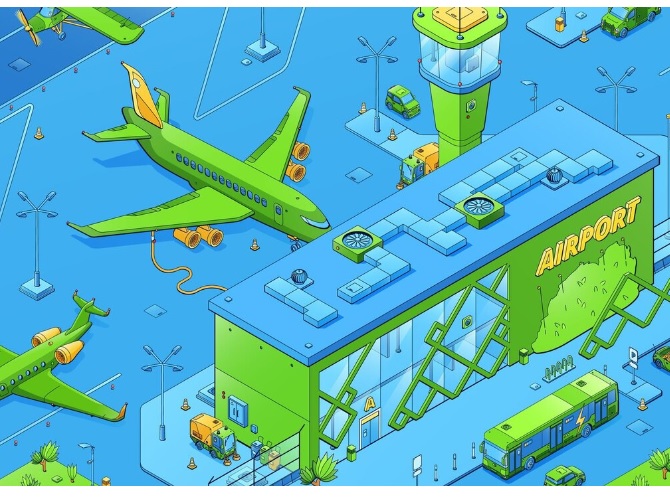This week, airline executives gathered at climate events in New York, reiterating their commitment to increasing the use of sustainable aviation fuel (SAF) while emphasizing the need for additional government backing to achieve these goals.
As per the media report, at events connected to the UN General Assembly and Climate Week NYC, proponents of alternative jet fuels discussed how various policies are helping to expand the market. These include tax incentives, low-carbon fuel standards set by U.S. states, and stricter SAF usage mandates in the European Union. While U.S. production capacity for SAF is expected to grow significantly in the coming years, concerns remain about limited supply and the higher cost compared to conventional petroleum jet fuel, which could impede broader adoption.
“SAF will always carry a higher price because it’s a superior product,” said Aaron Robinson, vice president of U.S. SAF for the International Airlines Group, which includes British Airways and Iberia.
Executives called for policies to stimulate both supply and demand but expressed a preference for subsidies over mandates. With tight profit margins in the airline industry, there are fears that potential customers might opt out of purchasing lower-carbon flights if they are forced to pay a premium.
Delta Air Lines’ chief sustainability officer, Amelia DeLuca, warned, “The worst thing we could do is impose a short-term solution that places the green premium directly on our customers.” She noted that the EU’s SAF mandates might be advancing too quickly given the current supply constraints and pricing.
The U.S. is set to introduce a significant subsidy for SAF next year, offering up to $1.75 per gallon for domestic producers. While this incentive was hailed as helpful, United Airlines’ chief sustainability officer, Lauren Riley, deemed it “historic, monumental, but not enough.”
Frustration has grown among U.S. biofuel groups as the Biden administration has yet to clarify the requirements for qualifying for the new credit, known as “45Z,” which ties the subsidy to the carbon intensity of SAF. Airlines and fuel producers argue that this tax credit, set to expire at the end of 2027, is too brief to establish a sustainable supply chain.
Tanya Vetter, ExxonMobil’s vice president of strategy and planning for product solutions, noted that while the 45Z credit should have a defined endpoint, that endpoint needs to be far enough in the future to encourage investment.
However, extending the 45Z credit would require new legislation, and reopening discussions on clean fuel incentives in Congress risks fracturing support for SAF.
Airlines and refiners advocate for more flexible feedstock options, including fuels from foreign sources like used cooking oil, while farm groups seek to boost demand for domestically produced vegetable oils and corn ethanol. A bipartisan group of lawmakers has introduced legislation to extend the 45Z credit through 2034 while imposing restrictions on fuels sourced from outside the U.S.
As Congress prepares to debate tax policy next year, airlines pushing for more robust and lasting SAF subsidies will face challenges from Republicans aiming to repeal aspects of the Inflation Reduction Act, along with competing interests that prefer funding other incentives.
Justine Fisher, chief financial officer of Canadian carbon capture company Svante, indicated this week that there is interest in increasing the tax credit for carbon capture, utilization, and storage, currently set at $85 per metric tonne. She emphasized that this incentive is vital for making project economics viable.





